Charting the course
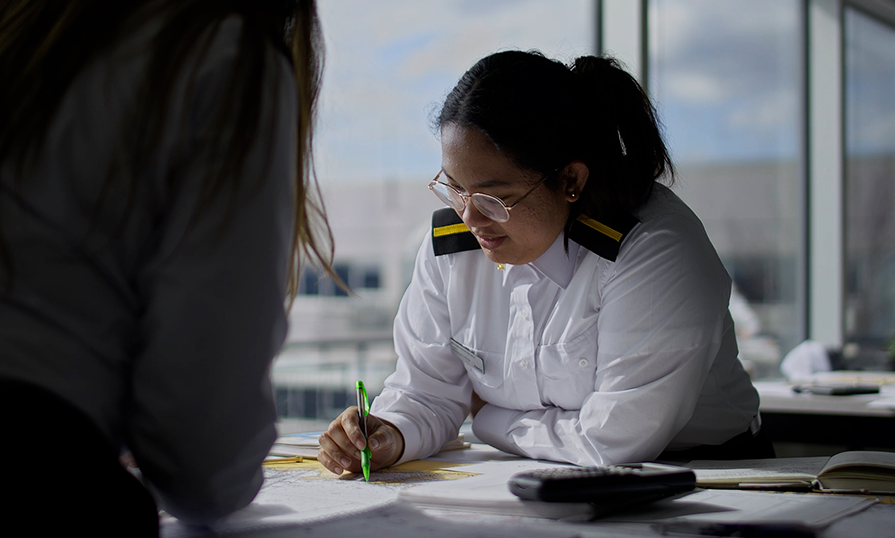
Get to know Michaela – Marine Navigation Technology student
Name: Michaela
Program: Marine Navigation Technology, class of 2027
Campus: NSCC Nautical Institute, Port Hawkesbury, NS
When Michaela decided to pursue a career at sea and enrolled in Marine Navigation Technology at NSCC’s Nautical Institute in Port Hawkesbury, Nova Scotia, it was a major shift from her previous career path studying nursing back home in the Philippines.
Starting the program with no experience at sea, Michaela admits it was daunting at first. But thanks to dedicated instructors and hands-on learning, she’s discovered a whole new world she loves and has no regrets about making such a big change.
Read on for our Q&A with Michaela where she shares her journey, challenges and what she’s learned so far.
Q&A with Michaela
What do students learn in the Marine Navigation Technology program?
A lot of people think marine navigation is just about learning to “drive” a ship or tying knots, but there’s so much more to it than that. In the Marine Navigation Technology program, we study various rules and regulations under Transport Canada as well as international rules, like collision regulations, how to observe the weather and various cargo operations which are essential for safe navigation anywhere in the world.
We also learn how to load and unload cargo safely, and even though much of the industry uses electronic systems now, we still have to master paper chart work and understand navigation principles thoroughly.
Beyond simply moving passengers and goods from one place to another, our training emphasizes making sure the crew is safe, the vessel is secure and the marine environment is protected.
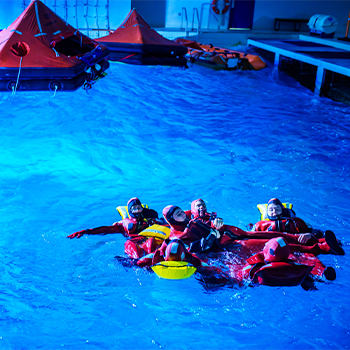
What is it like to study at NSCC Nautical Institute?
When I first toured the Nautical Institute at NSCC, I remember thinking, 'Wow, this is amazing.' It was surprising to see such a high-quality facility and equipment in a small town like Port Hawkesbury.
We use simulators to learn and practice the rules of the sea, steer a vessel and study ship regulations. One of the things that impressed me most is the large wave tank on campus. It’s where we practice vessel safety. The wave tank can simulate real waves, giving us a realistic sense of what it feels like to be at sea.
What are the instructors like?
Most of our instructors are former seafarers with many years of experience, and they’re incredibly compassionate. As someone who’s new to the industry and from a different background than most of my classmates, it means a lot to be surrounded by people who were so welcoming and willing to help. That support is a big deal for me.
They’re always eager to share stories from their own careers to motivate and inspire us. They also go out of their way to make sure we understand the material - even putting in extra time outside of class to help us if we need it. They truly care about our success.
What is something that has surprised you?
I was surprised by how strong the sense of community is in my program. We have small gatherings where we check in with one another and talk about how things are going. The connection and feeling of belonging goes a long way to create a supportive environment for our emotional and mental wellness.
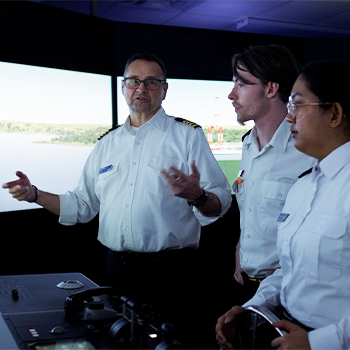
What are some skills that lead to success in the Marine Navigation Technology program?
I believe that those who have a drive to learn and courage to pursue will be most successful. If you're always willing to learn - no matter how hard the subject gets or how heavy the workload is – you will find a way and be successful. I think pursuing a career in the marine industry is a great choice. For me, it's a field where adventures and travel are your everyday companion. Every day is different, and if you like to travel and are interested in exploring the world from a different perspective, then a career in marine navigation may be a great fit.
As a student in a marine program, how is the A'paqt program helping you reach your career goals?
I’m grateful to be supported through the A’paqt project funding, also known as the Ocean Dream Award. It provides financial support for women and Indigenous Peoples, helping cover school expenses so we can focus on our studies.
This award plays an important role in promoting the participation of women and Indigenous Peoples in the marine industry, helping to diversify a field that has traditionally been male-dominated and making sure we have a place in it.
A'paqt funding for women and Indigenous Peoples
To help meet the marine industry demand and diversify the workforce, the federal government provides funding through the Ocean Dream Award for women and Indigenous Peoples who are enrolled in a marine program. Those eligible may qualify to have 90% of program costs covered by a bursary.
Related Stories
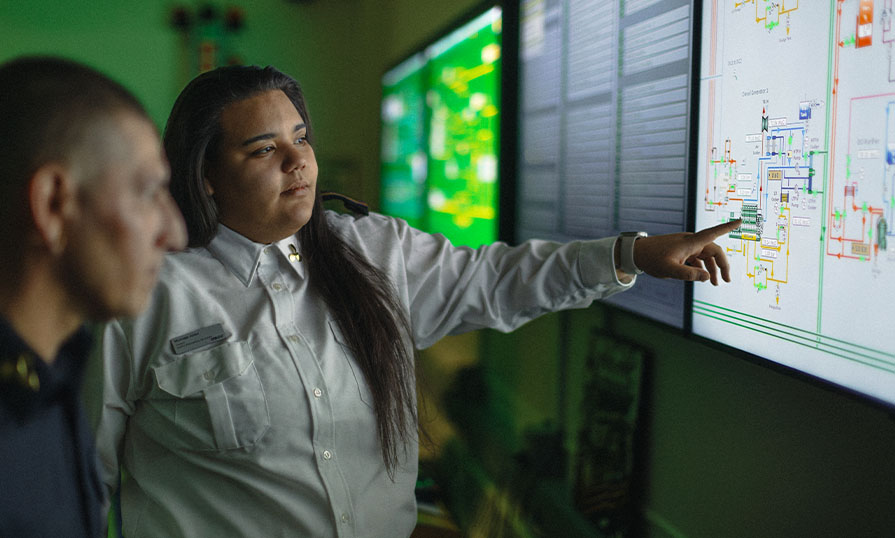 Pursuing a passion
Pursuing a passion
Michaela Julian’s passion for engine work and a desire to return to her Mi’kmaq community to work on a fishing fleet led her to NSCC’s Marine Engineering Technology program.
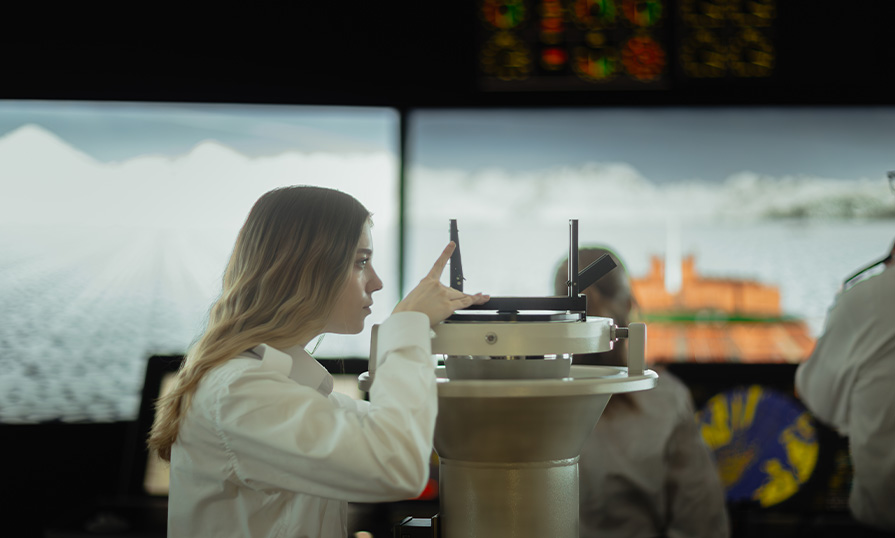 A desire to explore the world
A desire to explore the world
Julianna is following in her grandfather’s footsteps and has her sight set on a career at sea. A desire to explore the world while maintaining work-life balance is what drew Julianna to NSCC’s Marine Navigation Technology program.
